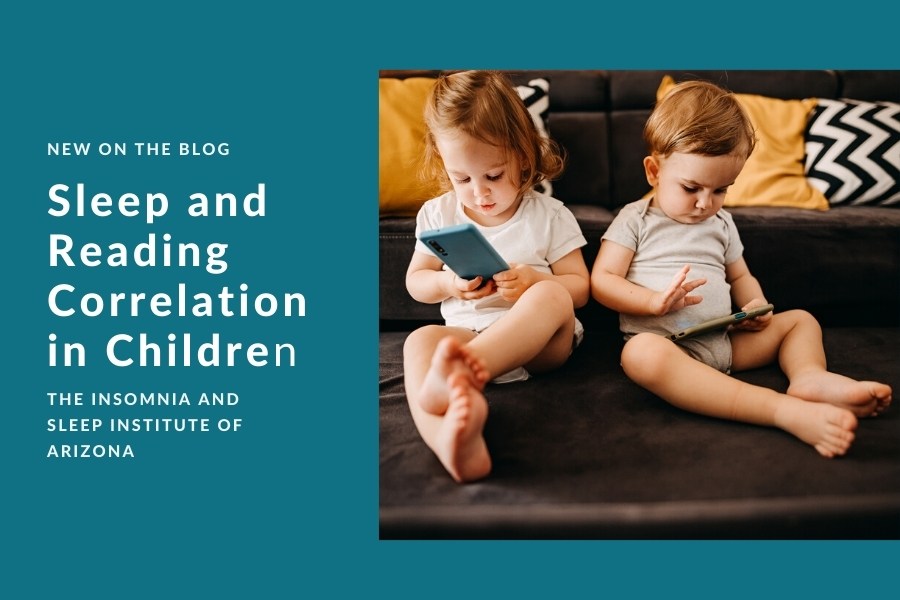Are children who are “good sleepers” also better readers? Yes, according to a recent study published in the British Journal of Educational Psychology. Sleep is essential for everyone, but especially for developing brains. That’s why The Insomnia and Sleep Institute of Arizona treats patients as young as two years old. We are outcome-driven, which means that the right treatment begins with the right diagnosis. Home to the triple board-certified Dr. Ruchir P. Patel at The Insomnia and Sleep Institute, your (and your child’s) first appointment is with a sleep expert who can diagnose sleep disorders. The sooner your child gets treatment for a sleep disorder, the sooner they can get back to doing what they love—learning, playing, and growing.
Contrary to popular belief, sleep problems are common in children and should be of concern. Lack of sleep and sleep disorders in little ones has been linked to poor cognitive abilities, decreased academic achievement, and delayed language development. Researchers considered 428 children across Britain, ages 4 – 14, to see how sleep impacted “oral word and non-word reading.” Parents filled out sleep questionnaires, and children took the Test of Word Reading Efficiency exam.
Results: Word Development and Sleep
The results showed that children whose parents reported more sleep-disordered breathing, shorter sleep times, and higher levels of daytime sleepiness also had worse performance when it came to reading (words and non-words) and overall had lower combined scores. According to the researchers, this supports the association between sleep and word/non-word reading. Although the disparity between the groups was relatively small, researchers maintain that it is “significant” because a child’s reading ability is cumulative. This means that children with various risk factors for lower reading ability are already at a disadvantage, but also that sleep intervention can make a big difference.
Researchers stress that reading ability has long been an indicator of later academic and life success. As such, the authors claim, “Our study provides important evidence to suggest that children with sleep problems should also be screened for literacy difficulties, and children with literacy difficulties are screened for sleep problems.” If you know that your child struggles with reading, there are a myriad of causes. Unfortunately, if you have overlooked quality sleep, you are not alone. Fortunately, help is available.
How Common Are Sleep Problems in Children?
Many parents are surprised to learn that sleep issues in children are actually quite common. In fact, researchers estimate that about 33 percent of children have at least one type of sleep problem. These issues can be the same or different as adults, such as OSA, non-OSA-related snoring, poor sleep hygiene, and “struggles at bedtime.” For example, it is estimated that “primary snoring” that does not affect oxygenation occurs in about 7.54 percent of children. However, OSA (in which the upper airway gets blocked) can be found in up to four percent of children. Daytime sleepiness is another common occurrence in children and, while not a sleep disorder in itself, can be indicative of sleep problems.
A meta-analysis that included 50 studies and 36,000 children typically considered “healthy” found that the strongest contributor to school performance was “daytime sleepiness,” then sleep quality, and finally sleep duration. There were some small variables, but researchers point out that they did not “significantly correlate with one another.” Furthermore, the youngest children showed the strongest effects, which highlights their relative lack of resilience to sleep problems. Finally, the researchers stress that early childhood sleep problems are closely associated with lower academic success—which can snowball into devastating consequences both in terms of health and academics.
Does Your Child Struggle with Sleep?
Every child can be challenged when it comes to sleep from time to time (just like adults). However, if you notice ongoing, chronic, or routine sleep troubles, it is time to get help. Your child’s health and well-being, as well as academic success, depend on it. So work with the Face of Sleep Medicine in Arizona to get the support your child deserves. Contact The Insomnia and Sleep Institute by calling the office or completing the online form. No referral is needed to schedule your consultation with one of our sleep specialists.





